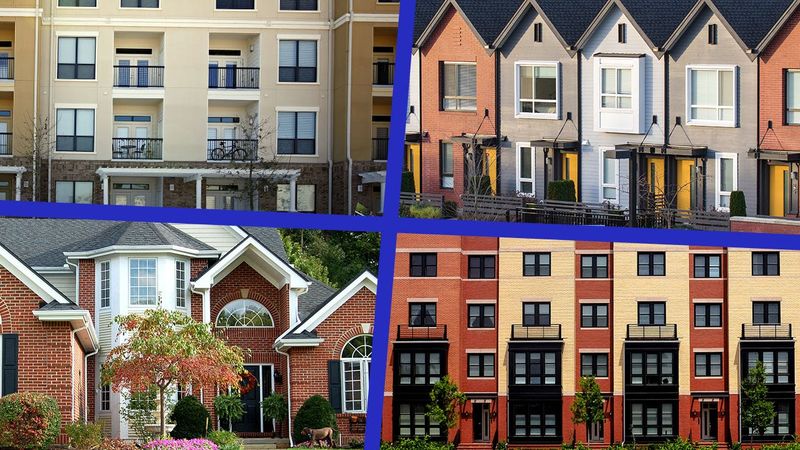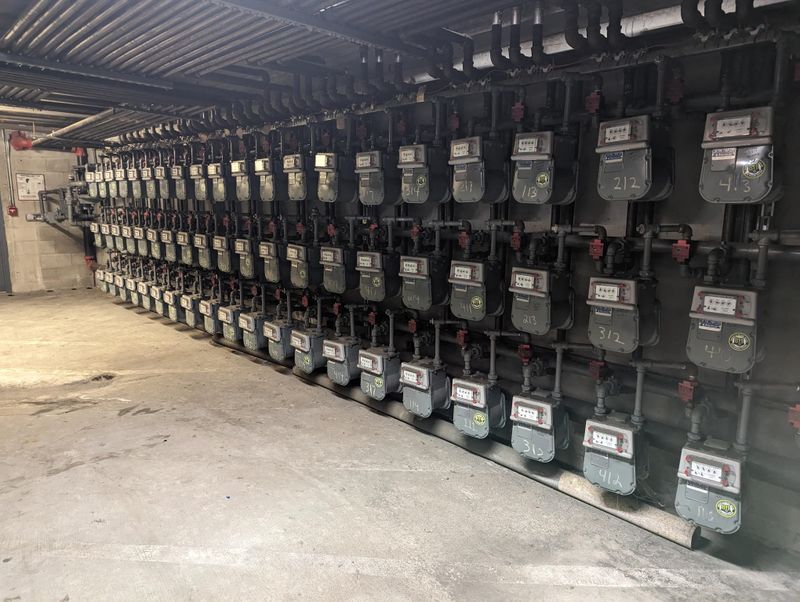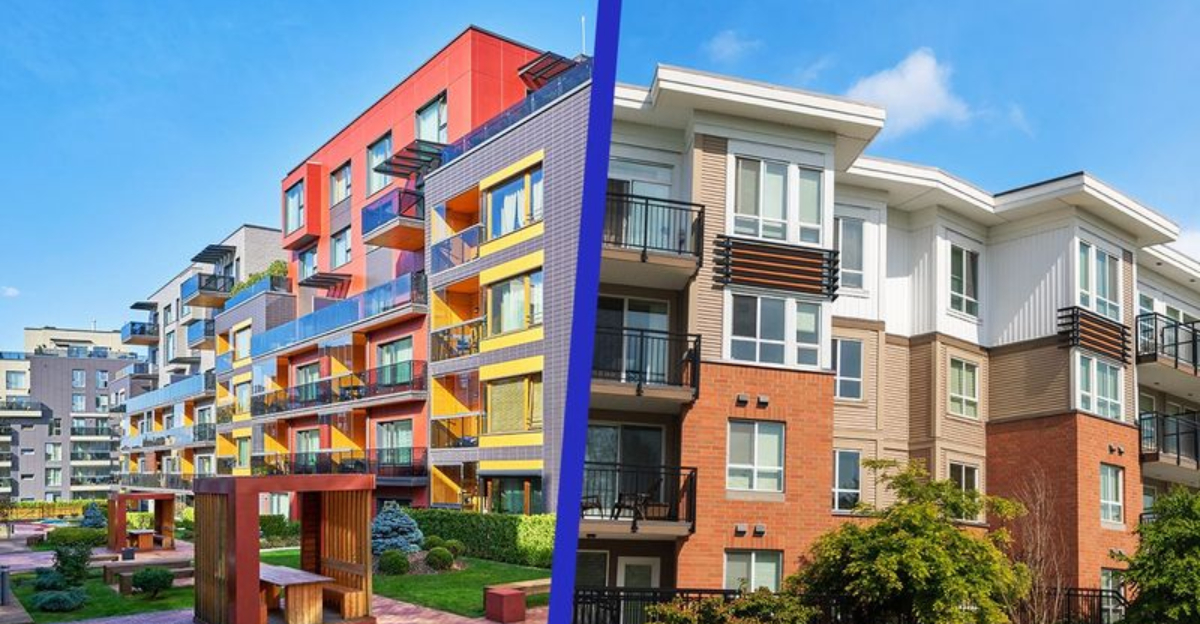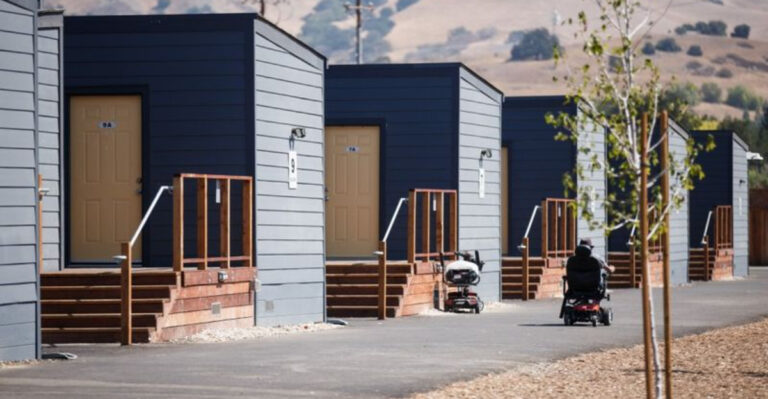16 Key Differences Between Condos and Apartments
Looking for a new place to call home? The condo versus apartment debate often confuses first-time buyers and renters alike.
While they might look similar from the outside, these two housing options differ in surprising ways that affect your lifestyle, finances, and responsibilities.
Let’s explore what sets these popular housing choices apart to help you make the best decision for your needs.
1. Ownership Structure

When you sign those apartment papers, you’re simply becoming a tenant. The entire building belongs to a single owner or property management company.
Condos, however, operate under a completely different model. Each unit is individually owned, creating a community of homeowners rather than renters. This fundamental distinction shapes nearly every other difference on our list!
2. Monthly Payment Destination

Following the money tells quite a story! Apartment dwellers write rent checks that go straight to a landlord or property management company, building someone else’s wealth.
Meanwhile, condo owners make mortgage payments toward their own equity. Though both require monthly payments, one builds personal assets while the other doesn’t. This investment aspect represents a crucial financial consideration when choosing between these housing options.
3. Maintenance Responsibilities

Ever had something break in your apartment? Just call maintenance! Apartment living offers the luxury of someone else handling repairs at no additional cost.
Condo owners face a different reality. While common areas receive maintenance through association fees, anything that breaks inside your unit comes out of your pocket. That leaky faucet or malfunctioning dishwasher? You’re responsible for fixing or replacing it yourself.
4. HOA and Community Rules

Life in a condo means answering to a Homeowners Association (HOA). These governing bodies establish and enforce community rules, from noise restrictions to renovation approvals.
Apartment complexes certainly have rules too, but they’re typically less extensive and more standardized across properties. The level of resident input also differs dramatically – condo owners vote on HOA matters, while apartment residents simply follow landlord policies.
5. Customization Freedom

Got a passion for interior design? Condo ownership grants you the freedom to express yourself through permanent changes. Want to knock down a wall or install hardwood floors? As an owner, you can!
Apartment living comes with significant restrictions. Most leases prohibit even basic modifications like painting walls or changing fixtures. Your decorating options typically remain limited to furniture and removable décor items that won’t affect the property.
6. Long-Term Financial Benefits

Imagine watching your housing payments transform into valuable equity! Condo owners build wealth with each mortgage payment, potentially earning profits when selling if property values increase.
Apartment renting offers convenience but zero equity building. Your monthly payments provide temporary shelter without any ownership stake or investment return. Though renting requires less upfront commitment, the long-term financial trajectory differs dramatically from condo ownership.
7. Upfront Costs

Your wallet feels the difference immediately! Apartment living typically requires first month’s rent, security deposit, and maybe last month’s rent – usually totaling a few thousand dollars.
Condo purchases demand substantially more upfront capital. Between down payments (often 10-20% of purchase price), closing costs, and initial HOA payments, you’ll need significant savings. This major financial hurdle represents one of the biggest initial barriers to condo ownership.
8. Amenity Differences

Luxury amenities often distinguish these housing options in surprising ways. Condo buildings frequently feature high-end offerings like rooftop pools, concierge services, and private event spaces that reflect their ownership model.
While upscale apartments certainly exist, their amenities typically aim for mass appeal rather than exclusivity. The quality and maintenance of these shared spaces also tends to differ, with condo amenities often receiving more attentive care thanks to HOA oversight.
9. Insurance Requirements

Never underestimate insurance differences! Apartment renters need only basic renter’s insurance, covering personal belongings and liability – typically costing just $15-30 monthly.
Condo owners require more comprehensive coverage. Beyond the HOA’s master policy (covering common areas), you’ll need individual condo insurance for your unit’s interior and possessions. This multi-layered approach provides necessary protection but adds another ongoing expense to condo ownership.
10. Property Tax Responsibility

Apartment dwellers enjoy blissful ignorance about property taxes. Your landlord handles these annual government fees without your involvement – though they’re certainly factored into your rent amount.
Condo ownership brings direct property tax responsibility. You’ll receive tax bills based on your unit’s assessed value and be responsible for timely payments. While potentially tax-deductible, these recurring expenses represent another financial consideration when comparing housing options.
11. Community Atmosphere

Walking through a condo community often reveals a distinct neighborhood vibe. Since residents are owners with financial stakes in the property, they typically invest more in community relationships and building upkeep.
Apartment complexes feature higher turnover rates by nature. With shorter-term leases and fewer financial ties to the property, residents may be less connected to neighbors. This difference creates contrasting social environments that might influence your housing choice.
12. Lease Flexibility

Freedom to move comes easier with apartment living. Most leases run 12 months, with some offering month-to-month options after the initial term expires.
Condo ownership represents a more permanent commitment. While you can certainly sell when needed, the process involves considerably more time, effort, and expense than simply not renewing a lease. This mobility difference proves especially important for those with changing life circumstances or career paths.
13. Noise and Privacy Considerations

Wondering about those thin walls? Construction quality often differs significantly between these housing types. Condos frequently feature higher-end soundproofing and construction standards, reflecting their ownership model.
Apartment buildings, particularly older ones, may prioritize maximizing rental units over sound isolation. However, experiences vary widely based on building age, location, and price point. The neighbor noise factor remains an important consideration regardless of which option you choose.
14. Utility Billing Structures

Surprise! Utility arrangements often differ dramatically between these housing options. Many apartment complexes include some utilities in the rent or use ratio utility billing systems that divide costs among residents.
Condo owners typically have individual meters and direct accounts with utility providers. While this offers more control over usage and costs, it also means additional monthly bills to manage. The difference affects both budgeting approaches and actual utility expenses.
15. Appreciation Potential

Dreaming of investment returns? Condos offer potential property value appreciation over time, though typically at slower rates than single-family homes.
Apartments provide housing but zero appreciation opportunity since you own nothing. This fundamental difference represents perhaps the most significant long-term financial distinction between these options. While market-dependent, the ability to build equity through appreciation remains a compelling advantage of condo ownership.
16. Special Assessment Risk

Never heard of special assessments? Condo owners should learn this term quickly. When major repairs exceed HOA reserves, owners receive additional bills to cover costs – sometimes reaching thousands of dollars unexpectedly.
Apartment residents face no such risk. Major building repairs remain the landlord’s responsibility, regardless of cost. This protection from unexpected large expenses represents a significant advantage of renting, particularly in older buildings requiring more maintenance.







